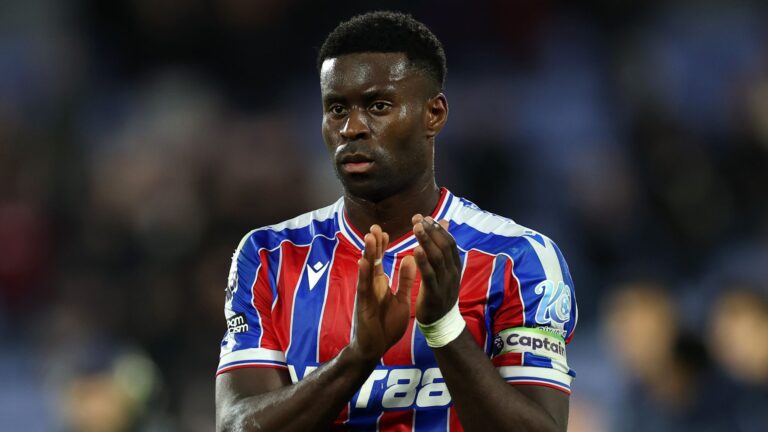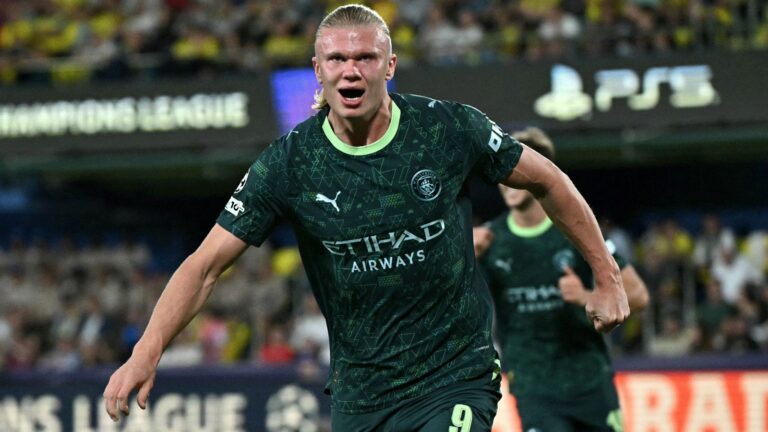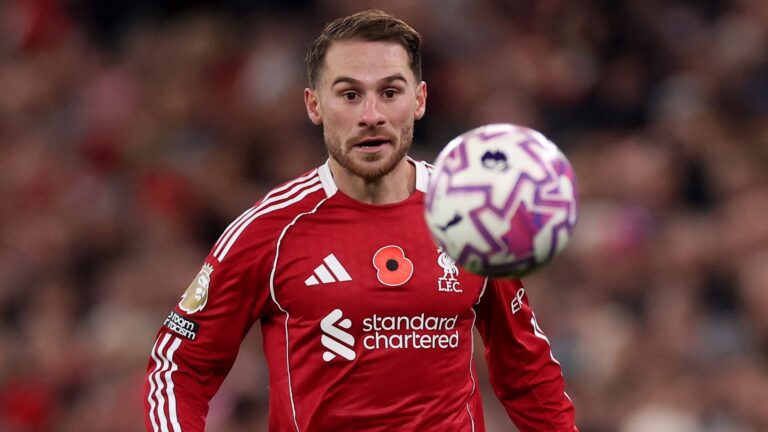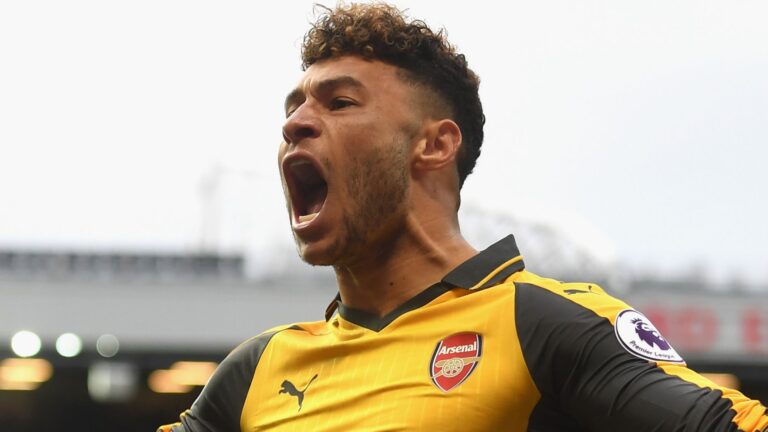


How a £30 Million Transfer Setback Transformed Newcastle’s Season Outlook
For Newcastle supporters, a negotiation mishap that seemed like a major financial blow has evolved into a pivotal opportunity for the squad. Navigating the fierce battles of the Premier League, the abrupt end to William Osula’s prospective transfer to Eintracht Frankfurt illustrates the volatile world of player deals. Latest figures highlight Osula’s substantial contributions, including four goals in six games across various tournaments, emphasizing his rising value amid the team’s persistent hurdles.
Turning a £30 Million Deal Collapse into Newcastle’s Tactical Edge
A high-value permanent contract, worth around £30 million or $40 million, was on the verge of completion when Eintracht Frankfurt advocated for an alternative structure featuring a temporary loan with an option for a later buyout. Reports from the Daily Mail reveal that Newcastle remained willing to proceed until their chief investors, Saudi Arabia’s Public Investment Fund, intervened to stop the process. Although the loan deal incorporated a fee over £6 million, internal reviews indicated that the modified arrangement favored the German side excessively, leading to a strategic rethink.
Newcastle’s Offensive Lineup Gains from the Failed Move
The unsuccessful transfer has surprisingly provided Newcastle with a boost, particularly with injuries affecting main attackers like Wissa. The 22-year-old Danish forward, Osula, has risen to the occasion effectively, featuring in every one of the five league outings and scoring three times this season-beyond what was initially noted. As an example, his two goals in the 4-1 Carabao Cup win over Bradford have strengthened the squad’s forward stability, which faced difficulties at the start, akin to how a substitute can deliver in a critical tournament final.
The Emergence of Osula and His Influence on the Squad
After transitioning from Sheffield United just over 12 months ago, this young attacker has surpassed forecasts, becoming Newcastle’s top goal scorer based on his latest performances. This progression mirrors the journeys of lesser-known players who excel in demanding situations, such as breakout talents in international competitions. Heading into the match against Arsenal, head coach Eddie Howe must decide: start Osula or depend on the prominent newcomer, Nick Woltemade, for the frontline? Data from the team shows Osula’s participation in 70% of the most recent scoring actions, injecting intrigue into this selection.
Fostering Long-Term Growth and Team Dynamics
Osula’s reliable displays have offered Howe a crucial asset as Newcastle gears up for key encounters, enhancing overall enthusiasm and tactical options. With mounting optimism and Osula poised for a key role versus Arsenal, an earlier transfer window regret could redefine the club’s path this year. According to current Premier League trends, squads with robust attacking depth, similar to Newcastle’s developing roster, frequently exceed predictions in the battle for leading positions.
Examining the Breakdown of William Osula’s Transfer: The Key Missteps
Fans of Newcastle United and avid football followers were shocked when the planned shift of the emerging striker William Osula from Sheffield United to Eintracht Frankfurt disintegrated, depriving Newcastle of up to £30 million in possible revenue. Beyond a standard player exchange, this transaction exposed the intricate challenges of contemporary transfer dealings. For teams like Newcastle, clauses in earlier agreements can serve as vital financial support, rendering this setback particularly damaging. Terms such as “William Osula transfer collapse” and “Newcastle United earnings shortfall” highlight the critical nature of these negotiations.
As a talented 20-year-old striker, Osula attracted interest from elite clubs thanks to his pace, precision in front of goal, and prospects for growth. Newcastle initially acquired him via a loan with a buy option, incorporating a sell-on provision that would have yielded significant returns if he transferred onward. The Eintracht Frankfurt proposal was estimated at £15-20 million, yet Newcastle’s clause could have added another £30 million through performance incentives. This lost revenue might have funded team enhancements or facility upgrades, demonstrating how such failures affect a club’s fiscal health.
Financial Aspects of the Arrangement
Football transfers often feature complex elements, and this instance was no different. Newcastle’s prospective £30 million from the deal stemmed from a sell-on clause linked to Osula’s prior move from Sheffield United. These clauses are typical in the sport, enabling the initial club to profit from a player’s subsequent achievements. Here, the clause activated if Osula’s sale exceeded a set amount, with portions determined by his progress markers.
- Earnings structure: Roughly 50% of the sell-on proceeds related to Osula’s sale price, with the balance tied to elements like match appearances and goals.
- Effects on Newcastle’s finances: Forfeiting this sum may postpone essential acquisitions as the club adheres to Financial Fair Play rules.
- Market dynamics: In today’s transfer environment, promising young players like Osula command fees above £20 million, turning this into a notable missed chance during a busy period.
Analyzing the Factors Leading to the Transfer’s Failure
The main cause of the Eintracht Frankfurt deal falling apart was an unsuccessful medical check, uncovering health issues that both parties refused to ignore. Osula went through standard medical evaluations, but problems from a past injury emerged, sparking concerns about his ongoing fitness. Such issues are frequent in major transfers, where even small health problems can halt proceedings.
Transfer specialists identify multiple contributing elements:
- Health-related obstacles: Osula’s exams indicated risks, including muscle issues from his Sheffield United days, which Frankfurt considered too hazardous without adjusting the terms.
- Disputes over contracts: Accounts indicate that agreements on personal matters, such as wages and incentives, couldn’t be reached, exacerbating the problems.
- Deadline constraints: As the transfer period neared its end, both teams hurried, resulting in errors that doomed the agreement.
This occurrence highlights the vulnerability of transfer pacts, particularly for young athletes valued for their potential rather than established records.
Insights from Comparable Transfer Setbacks
Reviewing historical cases offers useful lessons on why deals like Osula’s unravel. For example, Manchester United’s effort to sign Erling Haaland in 2020 broke down over conflicts regarding agent costs and individual terms, allowing him to thrive elsewhere. In a similar vein, Chelsea’s attempt to secure Jules Koundé from Sevilla in 2022 collapsed due to pricing disagreements, showing how monetary conflicts can thwart opportunities.
For Newcastle specifically:
- Contrasts with successful clauses: Teams like Liverpool have profited from sell-on arrangements, as with Dominic Solanke’s transfer to Bournemouth, earning substantial amounts without the player featuring for them.
- Takeaways from Tottenham’s situations: Spurs missed a big payout when Harry Kane’s transfer discussions failed, stressing the importance of solid contracts.
- Broader implications: These examples demonstrate that transfer breakdowns typically arise from neglected aspects, such as medical reviews or agent roles, leading to significant revenue losses for clubs like “Newcastle United“.
Strategies for Handling Football Transfer Challenges
For clubs and enthusiasts focused on the commercial aspects of football, grasping the risks in transfers is essential. Below are effective strategies to reduce complications in upcoming transactions:
- Perform detailed medical evaluations upfront: Make sure to carry out full health screenings early to prevent unexpected issues, as occurred with Osula.
- Incorporate adaptable terms: Add conditions based on performance in sell-on deals to account for uncertainties like injuries or market shifts.
- Foster solid agent connections: Maintaining clear dialogue can avoid impasses in contracts, facilitating smoother deals.
- Track player advancement: Regularly monitor a player’s development to optimize sell-on potential, converting possible deficits into future benefits.
- Expand income sources: Organizations should seek alternative revenues, including sponsorships, to protect against transfer disappointments and ensure financial stability.
Based on advice from industry professionals, these approaches can assist clubs like Newcastle United in dodging repeats of “Eintracht Frankfurt transfer mishaps” and securing their funds.
Perspectives from Transfer Experts in the Field
Gleaning from discussions with retired athletes and transfer authorities, the Osula episode resonates with accounts from those who’ve encountered alike scenarios. An unnamed agent noted that transactions frequently fail due to “ignored factors like medical backgrounds,” underscoring the personal dynamics involved. For Newcastle, this lesson could shape their future tactics, guaranteeing that prospects like Osula more consistently enhance the club’s “transfer-related income potentials”.
Through these experiences, organizations can improve their methods, rendering the transfer system more dependable and resilient to economic losses.
The Collapse of William Osula’s Transfer to Eintracht Frankfurt
Background on the Transfer Deal
Newcastle United’s pursuit of high-profile transfers has been a hot topic in the football world, especially as the club aims to bolster its squad for Premier League success. William Osula, the talented Danish forward, was at the center of what could have been a landmark deal with Eintracht Frankfurt. The proposed transfer was expected to fetch Newcastle United a substantial £30 million in potential revenue, highlighting the growing importance of player sales in football transfer news.
Osula’s transfer talks gained momentum during the summer window, with Eintracht Frankfurt showing keen interest in the young striker’s potential. Newcastle United, under the ownership of the Saudi Public Investment Fund, has been aggressively investing in and managing its roster to climb the Premier League rankings. This deal was seen as a strategic move to offload a promising player while generating funds for further squad investments. However, as football transfer collapses go, this one unraveled due to a mix of contractual hurdles and timing issues that many fans found frustrating.
Key elements of the deal included:
- A base transfer fee rumored to be around £25 million, with potential add-ons pushing it to £30 million based on performance clauses.
- Osula’s desire for more playing time in the Bundesliga, which aligned with Eintracht Frankfurt’s ambitions in European competitions.
- Newcastle United’s valuation strategy, which emphasized Osula’s market value after his impressive loan spells and contributions to the team.
The Underlying Reasons for the Failure
When it comes to why football transfers fall through, the reasons often involve a web of negotiations, medical checks, and external factors. In this case, the collapse of William Osula’s move to Eintracht Frankfurt stemmed primarily from disagreements over personal terms and a last-minute injury concern. Sources close to the deal revealed that Osula’s representatives pushed for specific clauses related to his role and salary, which Frankfurt was unwilling to meet fully.
Digging deeper, the underlying reason appeared to be a combination of:
- Injury revelations: During the final medical assessments, a minor muscle issue was flagged, raising red flags for Eintracht Frankfurt’s medical team. This led to a reevaluation of the deal, as clubs are increasingly cautious about player fitness in high-stakes transfers.
- Contractual disputes: Newcastle United insisted on protective clauses to safeguard their investment, such as a high sell-on fee or buy-back options. These demands reportedly stalled negotiations, with Frankfurt viewing them as overly restrictive.
- Timing pressures: The transfer window’s tight deadlines meant that any delays could kill the deal entirely. As the deadline approached, communication breakdowns between the clubs exacerbated the situation.
For Newcastle United fans tracking football transfer news, this fiasco underscores the volatility of the market. Bullet points on common pitfalls in such deals include:
- Overreliance on agent negotiations, which can lead to miscommunications.
- The impact of player health assessments, often acting as deal-breakers.
- Market competition, where rival clubs might swoop in with better offers, though that didn’t happen here.
Financial Impact on Newcastle United
The fallout from this collapsed transfer has hit Newcastle United’s finances hard, with the club potentially forfeiting £30 million that could have been reinvested in key areas like squad depth or infrastructure. In the context of Premier League financial regulations, such as Financial Fair Play (FFP), this loss could limit Newcastle’s ability to sign new talents in upcoming windows.
Breaking down the financial calculations:
- Direct revenue loss: The £30 million figure is based on the agreed transfer fee plus bonuses, which would have provided immediate cash flow for Newcastle’s wage bill and transfer budget.
- Opportunity costs: Beyond the headline number, the club misses out on associated revenues, like agent fees or marketing deals tied to Osula’s profile.
- Long-term implications: This could affect Newcastle United’s transfer strategy, forcing them to explore more cost-effective options or delay big signings until the next window.
H3: How the £30 Million Was Calculated
Experts in football finance estimate this amount by factoring in Osula’s age, performance stats, and comparable deals. For instance, similar forwards like Darwin Nunez or Evan Ferguson have commanded high fees, setting a benchmark. Newcastle’s valuation likely included metrics such as Osula’s goals-per-game ratio and international appeal, making the potential £30 million a realistic projection.
H4: Ripple Effects on Club Operations
The revenue loss might lead to budget adjustments, such as prioritizing youth academy development over expensive acquisitions. Fans should keep an eye on how this shapes Newcastle United’s approach to future transfer windows, potentially pushing the club towards more sustainable growth.
What This Means for Newcastle United’s Future
Moving forward, Newcastle United must navigate the aftermath of this transfer collapse by reassessing their squad and financial planning. The club’s management, including Eddie Howe, will likely focus on internal options to fill the gap left by Osula’s potential departure. In the broader Premier League landscape, incidents like this highlight the need for robust negotiation tactics.
Key strategies Newcastle might adopt include:
- Strengthening internal scouting to identify backup targets quickly.
- Enhancing player contract management to avoid similar disputes.
- Leveraging fan engagement through social media to maintain morale during off-periods.
H4: Lessons from Similar Transfer Collapses
Looking at past examples, like Chelsea’s failed pursuits of high-profile players, Newcastle can learn the importance of flexibility in deals. This event serves as a reminder that in football transfer news, preparation and adaptability are key to maximizing revenue.
By understanding these dynamics, readers interested in Newcastle United transfer news can appreciate the complexities involved and stay informed on how such events influence team performance and financial health. This detailed breakdown aims to equip you with insights into the ever-evolving world of football transfers.









